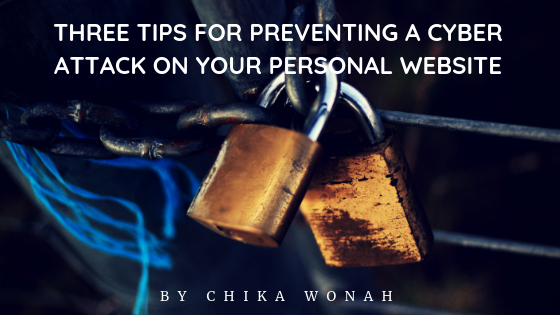Contrary to popular belief, personal websites aren’t immune from cyber attacks. While most cyber attacks involve business websites, some hackers specifically target personal websites because of their lax security. Webmasters aren’t as likely to implement iron-clad security measures on a personal website as they would on a business website. But there are ways to protect personal websites from cyber attacks, including the three methods listed here.
1) Use a Strong Password Combined With 2-Step Authentication
According to Google, compromised passwords is one of the most common ways that hackers gain access to websites. Webmasters can protect their personal website from cyber attacks by using a strong password as well as two-step authentication.
When creating the password for their personal website’s file transfer protocol (FTP) login, webmasters should use a unique, long password that includes non-sequential numbers, lowercase letters, uppercase letters, and special characters. If a webmaster uses a content management system (CMS) like WordPress, he or she should also use two-step authentication.
2) Monitor Website for Suspicious Activity
Because it’s designed for personal use, many webmasters neglect to monitor their personal website on a regular basis. Unfortunately, this results in breaches and cyber attacks going unnoticed.
To avoid the headache of a cyber attack, webmasters should monitor their website for signs of suspicious activity. Web pages automatically redirecting a spammer’s website, for example, may indicate a cyber attack. It’s not uncommon for hackers to add or modify links in the targeted website to funnel traffic to their own nefarious website. Another sign of a cyber attack is slow loading times. While many factors affect the time it takes a website to load, the deployment of malware can slow down a site.
3) Create and Store Backups Offline
Creating backups is an important step to secure personal websites from cyber attacks. When an attack occurs, the ideal course of action is to remove the vulnerability that caused the attack and repair the damage. This isn’t always feasible, however, which is why webmasters should create backups and store those backups offline. With a copy of the website stored offline, webmasters can restore their site back to its original condition in the event of a cyber attack.
A cyber attack can be a webmaster’s worst nightmare. Even if it’s a personal website, an attack can cause irreparable damage to the webmaster’s personal brand. Therefore, webmasters should implement the appropriate security measures to protect their site from hacking.

